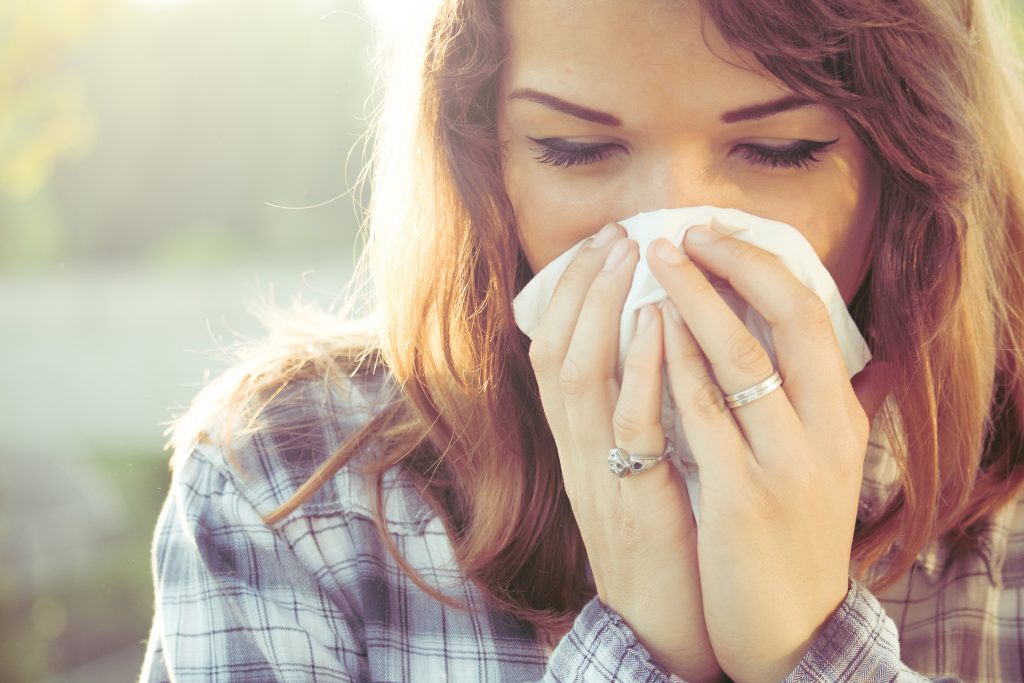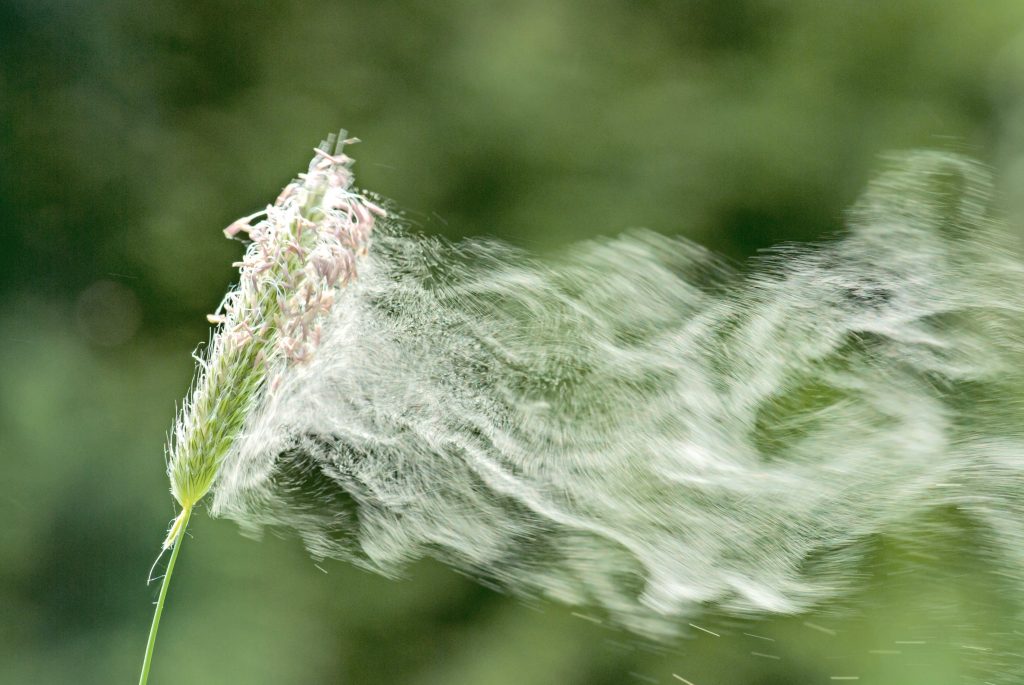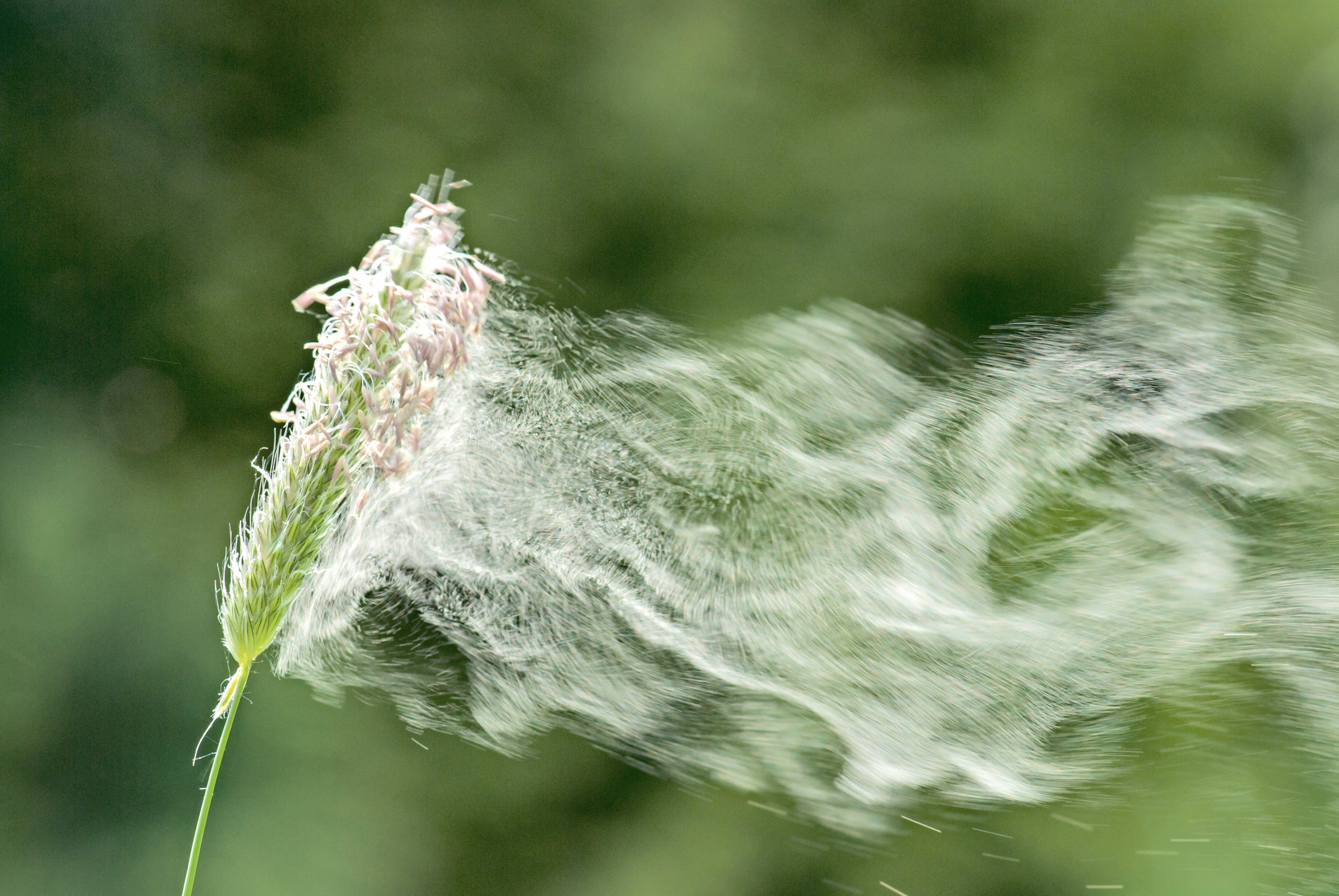Hay Fever. What, Why, How.
September 27, 2019 | by wp-katebarnes | 0 comments
Spring is my most favourite time of year yet… for 1 in 5 of us, this beautiful season is the absolute worst time of year.
Spring is when the pollen count goes up, which means for those 1 in 5 Aussies… a diminishing quality in life i.e. hay fever! Associated with non-stop runny noses, congestion, itchy, red eyes, constant sneezing, irritation in the ears, ear infections, sleepless nights, low energy and more...
It can feel unrelenting and what works for some, doesn’t always work for others, and symptoms can seem to suddenly develop later in life.
Each year, particularly in Australia, rates are incrementally increasing.
About 3.1 million Australians or 15% of the population had hay fever as a condition in 2007-08.
10 years later in 2017 - 18, nearly 1 in 5 Australians i.e. more than 4.6 million people or 20% suffer from hay fever. AIHW (Australian Institute of Heath and Welfare).
While Australia has one of the highest rates, in the UK experts report that by 2030 almost half the population i.e. an alarming rate of more than 30 million Brits will suffer from hay fever!
A good buddy got me thinking about this. She's noticed that sometimes people respond to a treatment & then not the next time. Why? And why the escalation in rates? It got me thinking…

flu. young woman having a cold.
Some hay fever sufferers have NO family history or are developing it later in life. This, along with the escalation in rates seems to indicate the trigger is environmental rather than genetic.
To uncover what's going on we need to look closer at the link between allergies and immunity.
Allergies and Immunity.
Allergic reactions begin in the immune system.
Take for example, a usually harmless substance such as dust, animal fur, fungal spores, mold, or pollen being exposed to a person with an allergy. This persons’ immune system over reacts and produces antibodies that "attack" the allergen (substance). This ‘attack’ triggers the symptoms.
Note, allergies are a different immune response to an autoimmune response. An autoimmune condition is when the immune system starts attacking the body's own tissues, rather than an ‘over-reacting’ response.
Given 80 % of immunity lies in the gut, the state of the digestive system (gut) & the microbiome (bacterial population) must have a BIG part to play in the development of an allergy.
What creates the ‘state’ of the digestive system?
The state of the digestive system is primarily influenced by WHAT is consumed or what it is exposed to.
WHAT heals v WHAT harms?
The digestive and immune systems are incredibly complex, however very simply, it follows that consuming foods that agree with your biology or chemistry and exposing the gut to biologically recognisable substances, means the digestive system and therefore immune systems will function better and thereby lessen the chance of developing allergies.
What to do?

If you suffer from hay fever or allergies in general and haven't already considered improving the health of the gut, start there, in particular the health of the microbiome.
And if you’re a hay fever sufferer consider restoring the microbiome of the nasal passages as well, (see below).
Remedies / Treatment
The 3 most common treatments for hay fever include; antihistamines, corticosteroids and decongestants. While they have their place and offer relief, they don’t offer a long-term solution.
In addition if the aim is to maintain the integrity of the microbiome (our bacterial population) and a healthy digestive system i.e. the seat of our immunity, then complementary remedies are worth exploring.
14 complementary remedies
These remedies can be quickly dismissed for their simplicity, but can be equally, if not more effective in their treatment.
- Being outdoors isn't where you want to be, yet spending time outside at midday when the pollen count is lower & outside of the season, is the best way to re-establish a healthy and native microbiome. As Zach Bush MD says, 'breathe your biome'.
- Whole Foods. ‘Eat your biome’ by enjoying locally sourced, organic veggies with lots of variety. Even better get a veggie and/or herb patch going. It's the best way to build a healthy, diverse microbiome.
Even though there’s not a quick fix, here are some ideas to relieve symptoms immediately and with time;
- a good quality probiotic.
- rubbing coconut oil on the inside of your nostrils for pollen protection.
- local honey.
- good quality aloe vera or aloe juice to help ease inflammation.
- a respiratory blend essential oil or lemon oil for congestion.
- Raw garlic to help clear the passages and ease congestion.
- Organic bone stock.
- Soothing herbs for the gut such as slippery elm and deglycyrrhizinated licorice (DGL).
- Avoid common inflammatory causing foods e.g. conventional dairy, wheat, sugar, processed foods, coffee, alcohol etc.
- a steam bath.
- using a saline nasal spray or netti pot or the RESTORE sinus nasal spray helps restore the nasal microbiome too.
- And most importantly time outside breathing through the nose rather than the mouth, outside the season!
Let's revisit the initial questions.
- Why is it sometimes people respond to a treatment & then not the next time?
Given the thoughts in this post, perhaps it’s because the variables have changed e.g. this season the body is exposed to different pollens from the previous season OR
the individuals’ microbiome has changed since the previous season (the microbiome can change within days), or the diet has changed and the new foods have altered the digestive and microbial state. Or other changes in the environment.
- Why the escalation in rates?
Given that the health of the digestive system is paramount to a healthy immune system, the escalation in rates must have something to do with WHAT we are exposing our digestive systems to i.e. inferior foods rather than whole foods recognised by the body and unnatural / un-biological (inorganic) substances and toxins that disrupt the state of the micriobiome and digestive system, triggering dis-ease.
This is a personal reflection on how to give more long-term relief to so many people, and enjoy, what should be, a glorious and uplifting time of year. I hope it helps and gives ‘food for thought’.
And naturally, if symptoms persist, see your preferred health practitioner asap.
If you suffer from hay fever, I'd love to hear what's worked for you?
Then if you’re keen to stop the cycle, let’s have a quick complimentary chat to explore your options.
Schedule your 15 minute session here.
References include;
https://www.ncbi.nlm.nih.gov/pmc/articles/PMC6056614/
https://www.aihw.gov.au AIHW (Australian Institute of Heath and Welfare).

